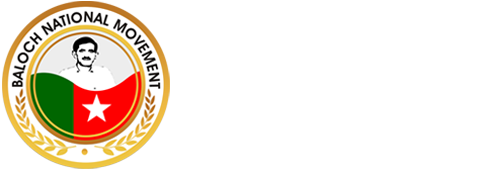The third meeting of the Baloch National Movement (BNM) cabinet was convened under the presidency of Dr. Naseem Baloch, the BNM chairman. During the meeting, numerous significant decisions were made following the discussion of various agendas, assessment of the regional and international situation, and critical deliberations.
Chairman Dr. Naseem Baloch expressed contentment with the party’s progress amidst the challenging conditions in Balochistan. He noted that despite the difficulties faced by BNM in sustaining activities in Baloch Gulzman (Baloch Homeland), the party has adopted a new strategy, ensuring its presence in various forms.
Regardless of the situation, Chairman Dr. Naseem Baloch asserted that BNM will strive to advance alongside its ideological allies. He emphasized that an organized movement is essential to contend with Pakistani brutality, with the party’s full activity being the most effective way to achieve this goal.
Dr. Naseem Baloch highlighted the Baloch nation’s support for Baloch independence forces, evident in their indifference to Pakistani elections. He stated that the fear instilled by the state in the hearts of the people has subsided, and the awareness generated after the martyrdom of Malik Naz in Turbat persists.
Referring to the martyrdom of BNM Central Councilor Shaheed Chairman Dosta in the Shamsar tragedy in West Balochistan, Dr. Naseem Baloch expressed sorrow over the complete family that was martyred due to the Pakistan army’s attack. He lamented the continuous loss of lives in Balochistan and condemned the Shamsar tragedy as another instance of the state’s oppression and atrocities.
Dr. Naseem Baloch drew attention to the thousands of families forced to migrate from Pakistan, facing dire conditions in neighboring countries without refugee status under the International Organization for Refugees. He expressed the desire and effort to grant them regular refugee status, providing the same rights as recognized by the United Nations worldwide.
Regarding BNM’s efforts in advocating human rights in Balochistan, Dr. Naseem Baloch mentioned the organization of the 3rd World Conference on Human Rights in Balochistan in the Netherlands. He said that a campaign was initiated during the UN session, with further programs planned by BNM in Geneva during the UN session in March of the current year.
Addressing the cabinet meeting, Secretary General Dil Murad Baloch stated that the Baloch National Movement plays a prominent role in Baloch national politics. BNM stands as the sole party in the struggle for national independence, where from its founding leadership to the cabinet, central committee, and cadres, numerous individuals have made significant sacrifices. Recognizing these sacrifices, Secretary General Dil Murad Baloch emphasized the necessity of working for the national cause.
He stressed that revolutionary parties can achieve better results through strategic planning, tolerance, mutual respect, and teamwork. The party has consistently adhered to the philosophy of teamwork and mutual respect, considering it an essential part of its culture and traditions.
-We must increase our efforts for the freedom of Balochistan, says Dil Murad Baloch

The Secretary General of BNM Dil Murad Baloch acknowledged the various challenges faced by the party, including state brutality and the Baloch refugee problem. However, he expressed confidence in overcoming these problems strategically to minimize losses. Diligent teamwork, he noted, would significantly enhance work efficiency. Additionally, he highlighted BNM’s ongoing efforts to renew its relationships with close organizations, aiming to strengthen collaboration for the national cause.
Reflecting on a phase in the movement marked by a change in the situation of expression due to state crackdowns, Secretary General Dil Murad Baloch pointed out incidents of state brutality and war crimes that shook Baloch society. Despite this oppression, a new rise emerged, particularly following the incident involving Balach Molabakhsh Baloch. The movement took a new turn, evolving from protests in Makuran to a grand long march that traversed different areas of the Baloch homeland, reaching the Press Club in Islamabad.
Dil Murad Baloch asserted that Pakistan, as a state, is not responsible and does not adhere to international laws, including its own constitution. The Pakistani army’s violations of human rights in Balochistan are evident, and he anticipated no significant change in Pakistan’s oppressive strategies. However, he stressed the duty of all parties and organizations involved in the movement to expose Pakistan’s brutality to the world and mobilize the Baloch nation.
Discussing the Baloch Long March, Dil Murad Baloch highlighted Pakistan’s attempt to forcibly deport participants and the use of violence and arrest tactics. Despite these challenges, the participants established their camp, receiving international attention from the media and organizations, including members of the British Parliament. This success emphasized the significance of the Baloch message and exposed Islamabad’s colonial treatment of Balochistan.
Dil Murad Baloch noted a historic acknowledgment by the head of the state, the prime minister, who admitted that the Baloch are engaged in a war of independence based on their identity. This marks the first time the head of state has recognized the Baloch struggle, acknowledging that Baloch prisoners in the army will be acquitted in courts.
Dil Murad Baloch emphasized the need to enhance diplomatic efforts, acknowledging the commendable representation of BNM’s friends at the Balochistan and Diaspora levels. He urged a broader diplomatic approach, moving beyond a few countries and seeking new diplomatic avenues for future progress.


